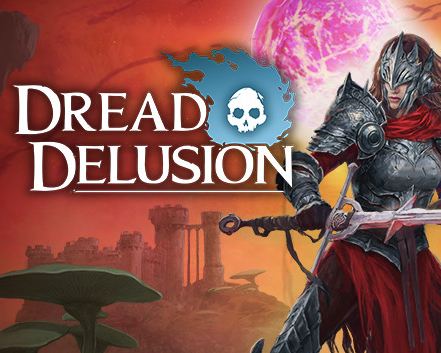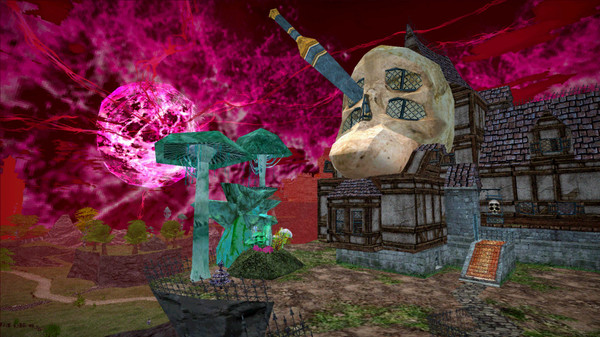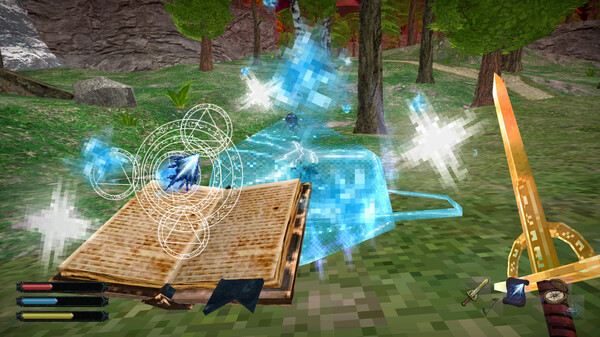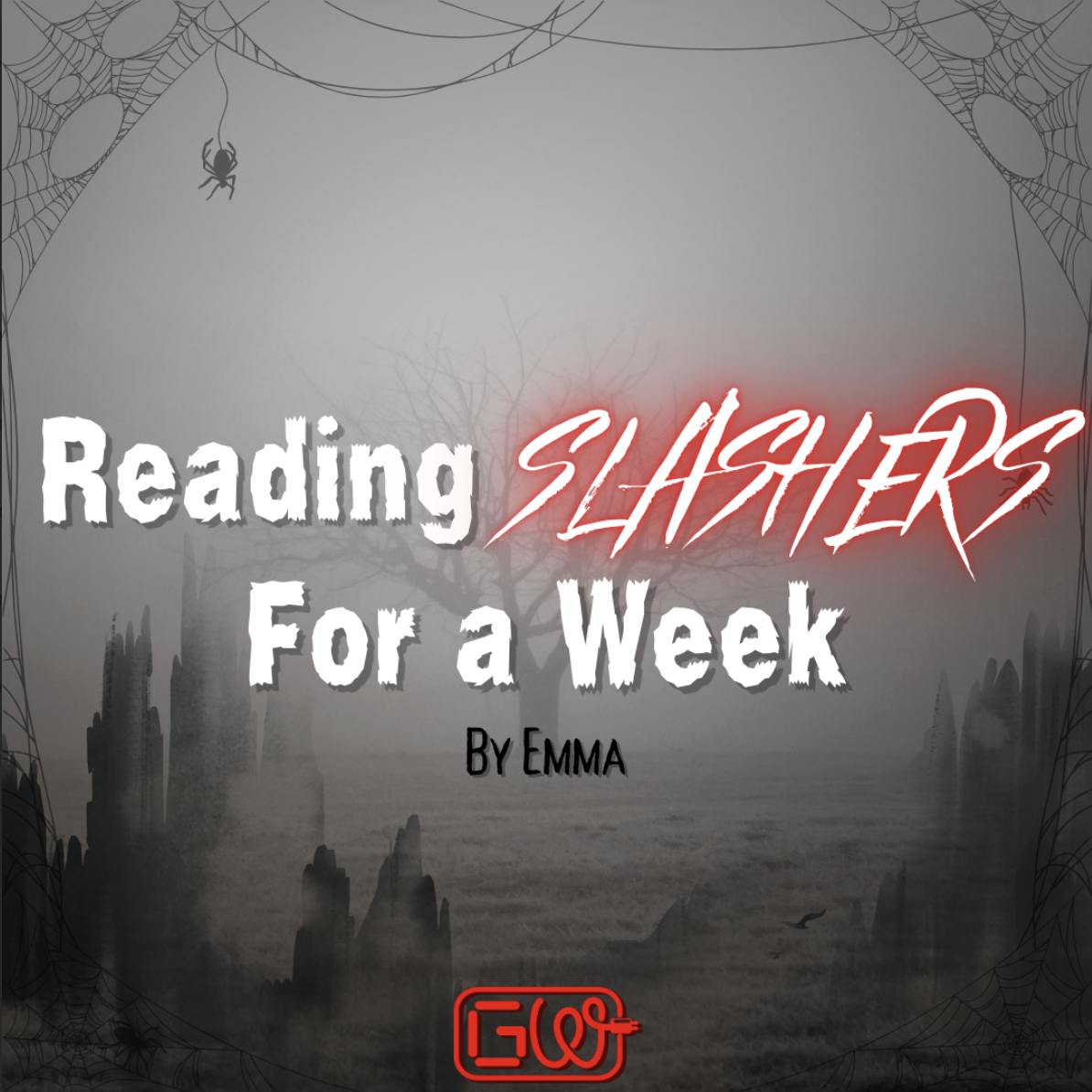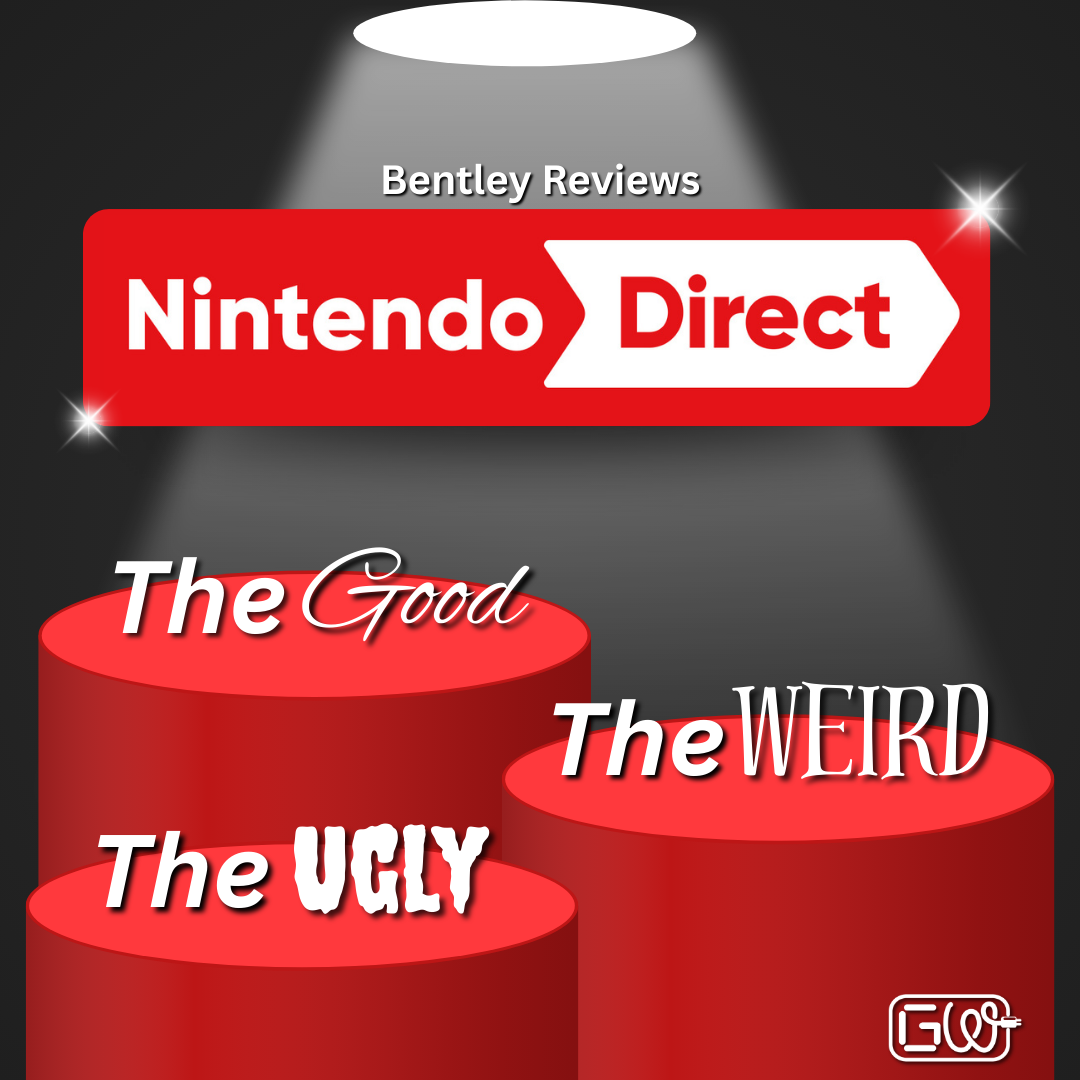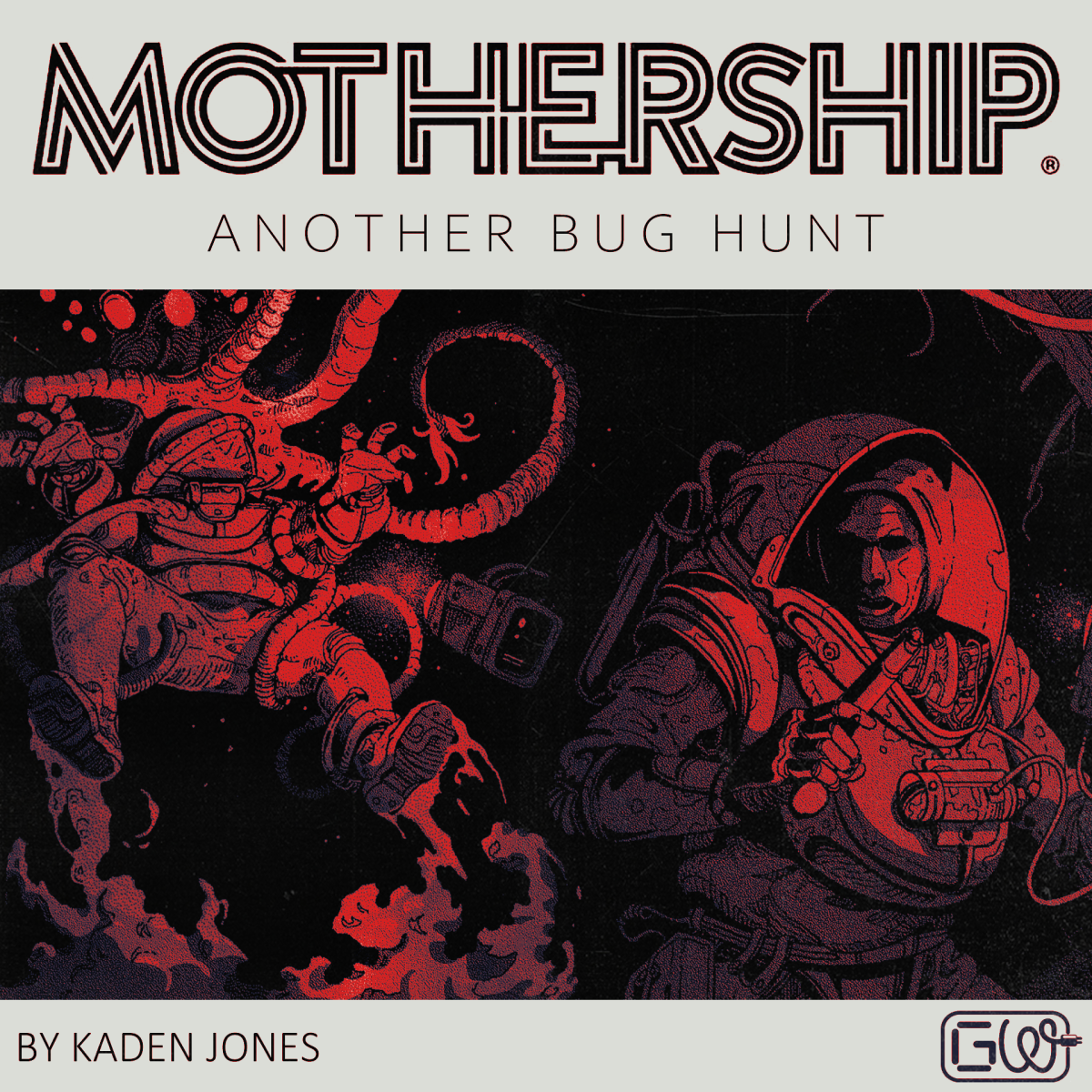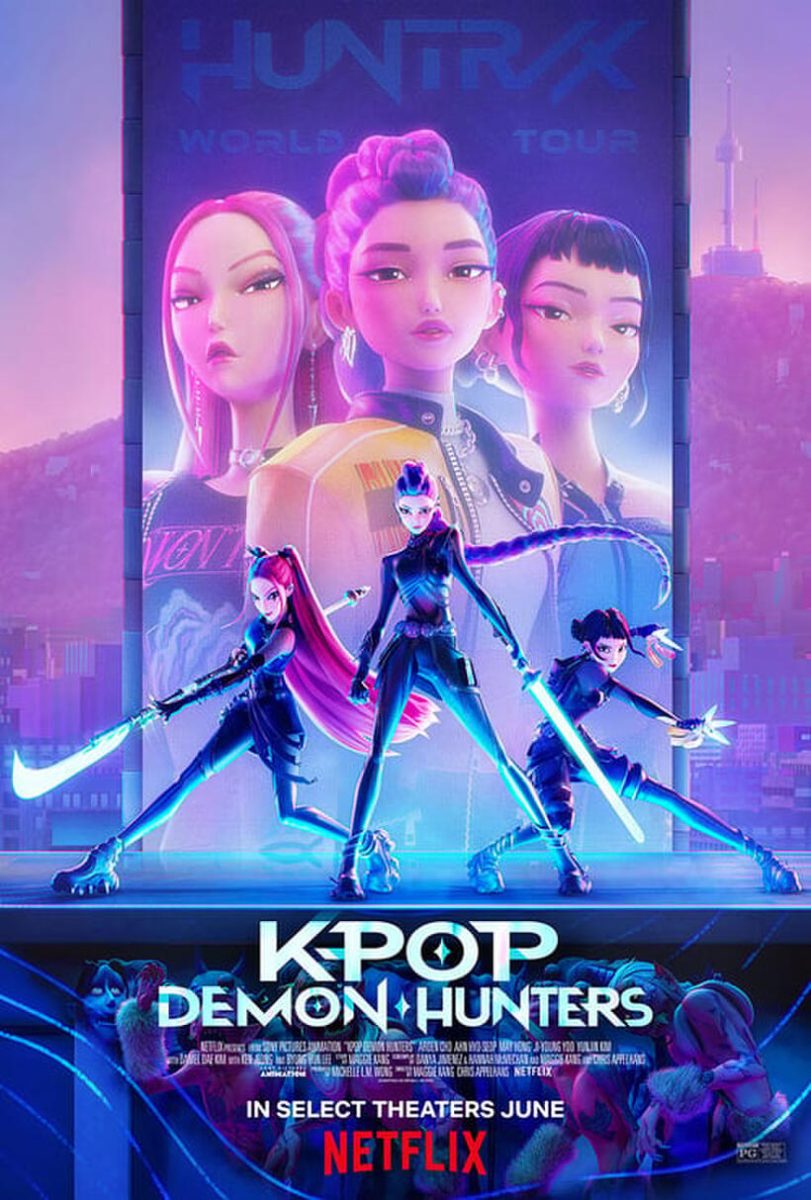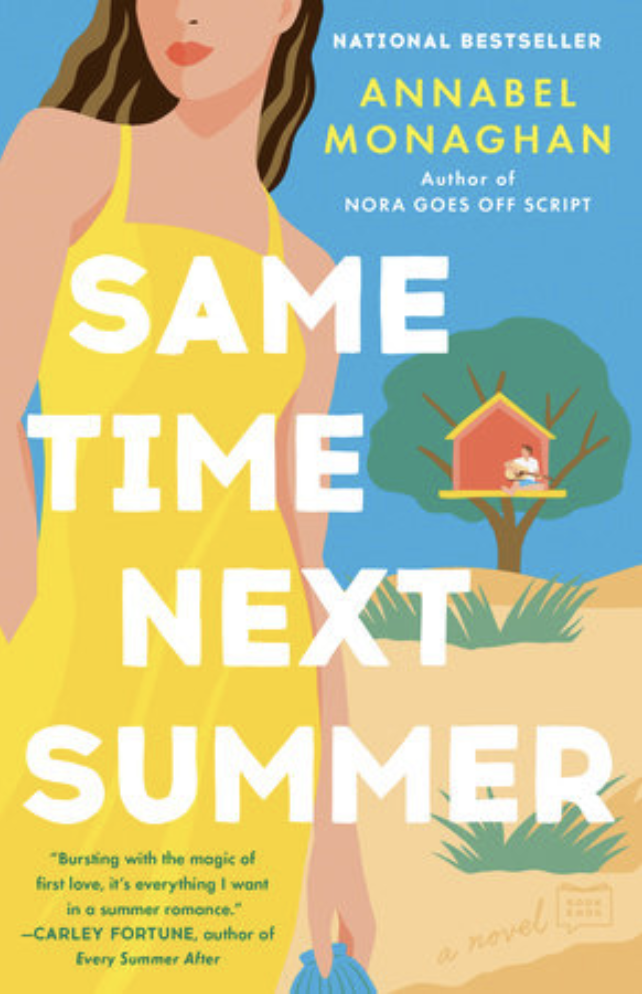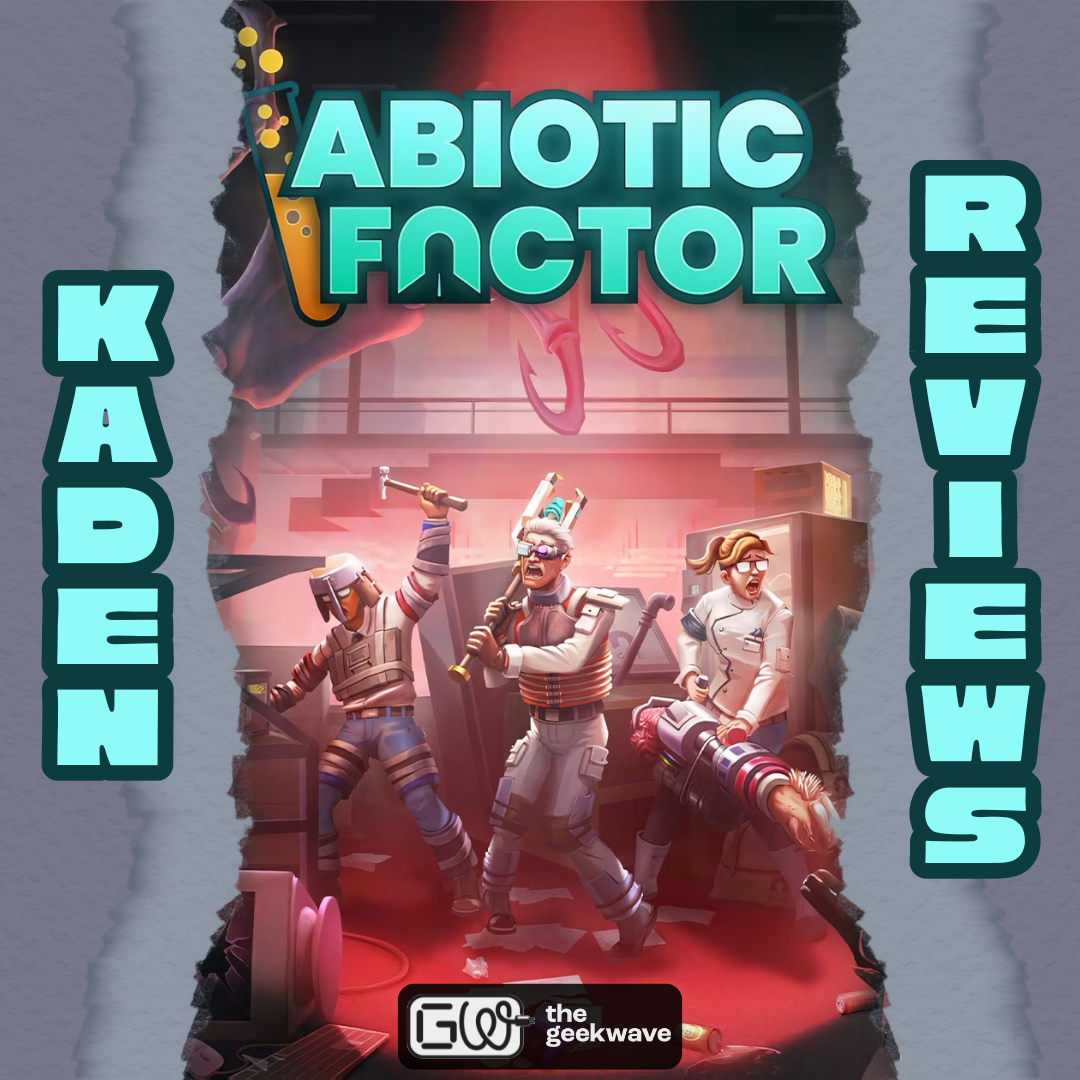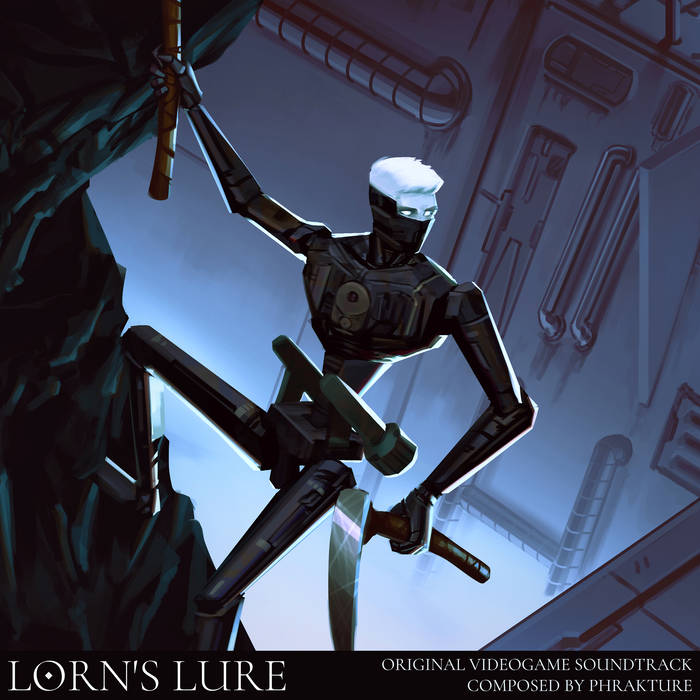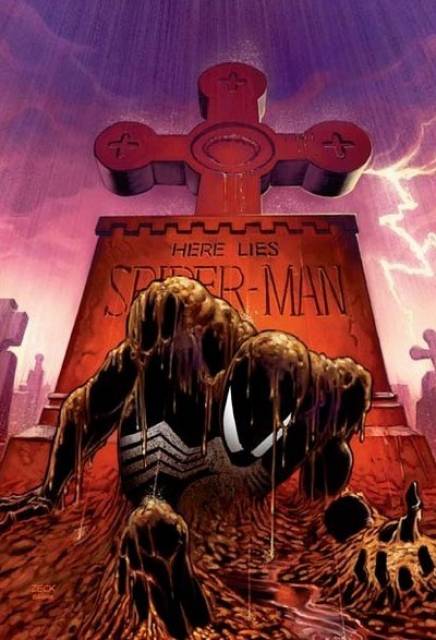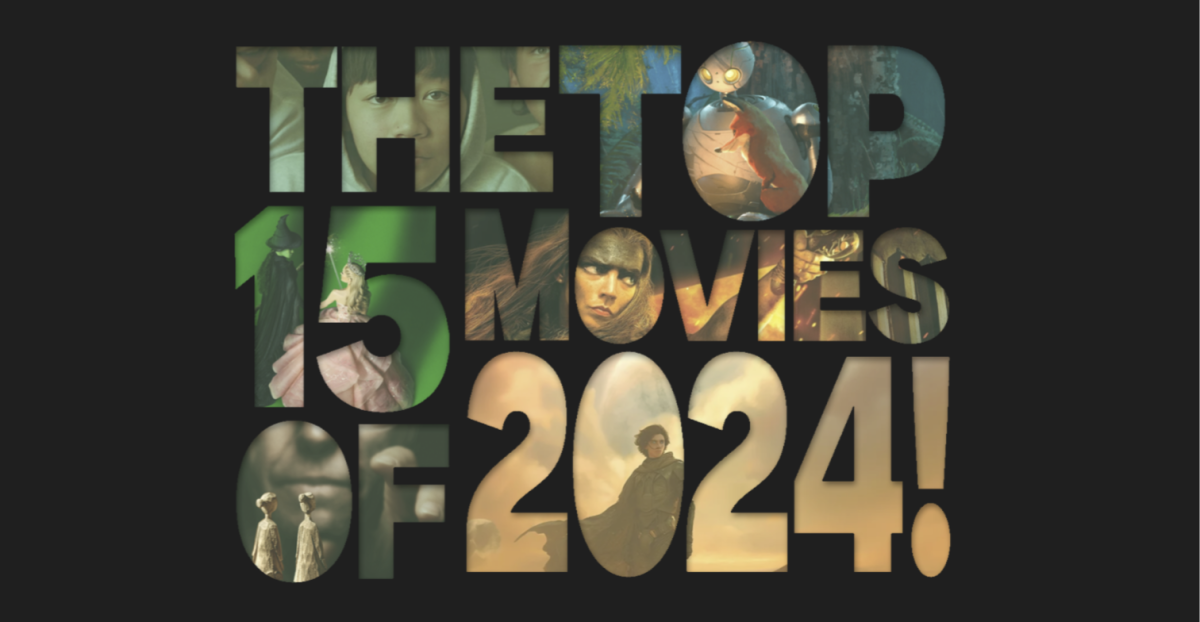Dread Delusions is an indie title developed by Lovely Hellplace and Published by DreadXP. Its Steam store page describes the game as “…a hand-crafted open world” and elsewhere on the page to be “brimming with strange places and dark perils.” From first-hand experience, I can confirm that Lovely Hellplace has created a wonderfully weird world that has been a delight to explore. While some of the game’s systems lack a depth found in bigger-budget games of this genre – namely combat and character progression – the exploration has been so damn fun that I don’t care.
You play in a first-person perspective reminiscent of TES V: Skyrim, or more specifically, TES III: Morrowind. If you have played a Bethesda title, this will feel familiar, but a lot of the bloat found in Skyrim has been smartly trimmed down. This gives Dread Delusions a single-minded focus on exploration, which it does very well. You begin as a prisoner of the Apostatic Union, a group that came into power 40 years ago during “The God War”. With that war now over, they govern the region and ruthlessly hunt down any remaining pockets of god worshipers. You have been tasked to capture a highly dangerous fugitive with the promise of freedom if successful. You receive a broken sword, caked in rust, to aid you in the task. It’s clear no one expects you to succeed, but so many others have failed in capturing this fugitive that the Apostatic Union is out of better options.
Exploration is the most robust feature of Dread Delusion because every system in the game is designed to make wandering this strange world a delight. On their own no individual gameplay system is very complex. Combat is a simple dance of moving into range to swing my sword and then stepping back to avoid being hit. There is a block and parry system, but I rarely needed to engage with it. Character progression consists of deciding which of four stats to assign a point to. The joy of Dread Delusions is how all of these simple systems come together to make exploration an engaging loop. Take Fragments of Delusions for example. These are pickups that are found in hidden places throughout the environment. Find three, and you have a complete Delusion, which lets you assign a point to one of your four main stats. These are only found through exploration, so you must get out there if you want to level up. You also have an energy bar, used for actions such as attacking and running before quickly recharging. As time progresses, the maximum amount of energy available decreases. It can be restored by resting in a bed, which can occasionally be found in the wild but at a risk of getting mugged or attacked while you sleep. For this reason, I would most often return to town to rest in a safe bed and recharge my energy. While there, I turn in quests and use crafting resources I found to improve my gear at a crafting station. This is the core loop I spent most of my time doing, and it is wonderfully paired with a weird and engaging story and equally weird world. I am driven to go out and explore to discover more lore of the world and as I do I become stronger.
A major reason why exploration feels so good is due to what the developer did not include. The HUD has no minimap, instead the map is found in the menu, which is uncovered by exploring the world. At first, this felt a bit clunky and disorienting, but then I realized due to the care put into crafting this world, I was always in sight of a visual landmark that I could use to orient myself. Once I got used to navigating the world by actually looking at my environment and not simply following a minimap, exploring became far more immersive. I would stop to check my compass to see which direction I was facing, put it away, pull out the map, study it for landmarks, put away the map, and then scan the horizon to look for the landmarks I found on the map. I felt like an explorer in a way that most modern games with extensive waypoints and yellow paint to follow rarely elicit.
The Setting
Dread Delusions takes place in the Oneric Isles, a fantasy setting that feels wonderfully alien. It reminds me of TES III: Morrowind in the best way. The flora and fauna include large mushrooms the size of trees, large creatures that look like noses that are oozing snot, herbs that are seemingly packed full of eyes that stare at you, hairy monsters with two mouths and giant swords, and more. Nothing is what it seems, and everything is delightfully weird. A dominant theme as I explore and talk with NPCs is dealing with the aftermath of the God War 40 years prior. Before the God War, most inhabitants of the world worshiped one god or another. While many of these gods were cruel, discontent with the Apostatic Union has been growing. Many now wonder if they simply traded the old gods for the new, equally harsh Apostatic Union. As the story unfolds, it becomes clear that you will be pivotal in deciding between the Apostatic Union, the Gods, or other potential choices.
Put another way, the setting feels like Elden Ring and other FromSoft games in the sense that you are exploring a world full of glory days long gone. This is a world that had peaked and is now in decay.
The Rotten Onion Bandits
Dread Delusions features several meaningful choices with no clear good or bad option. The right option for one player won’t be right for another, as it forces the player to consider their values and what they think is right in the complex world the game drops them into.
It was an early side quest that helped me understand what the game was about. Someone in Pwyll, the village I was currently at, was engaged in god worship. If I could find out who, Culwych, the local weighmaster, would give me the requisite paperwork to journey to the next area where I had to reach to progress my main quest of hunting down the fugitive. My investigation led me to the mayor, who would fill me in on a potential lead if I took care of some local bandits who captured a giant beast and are now threatening to unleash it on the village unless the mayor pays them a ransom. The mayor didn’t officially ask me to kill all the bandits to solve the problem, but she did tell me that if the bandits were all found dead, the village would have no official investigation.
I went to the keep overrun by bandits, the giant monster serving as a beacon on the horizon to guide me. I entered the keep with a stab first, ask questions later policy, but after stabbing the second bandit, I stopped because something wasn’t right. No one was fighting back. So I just walked past all the bandits on my way to their leader. She told me that the keep was now under the occupation of the Rotten Onion Bandits, who admittedly weren’t all that great at their chosen profession. The mayor of Pwyll had hired her and her crew to clear the keep of some monsters that had taken roost, but when the job was complete, the mayor refused to pay the fee. The bandit leader did not intend to release the monster on the village. The beast was fake, merely an illusion spell, but she hoped it would scare the mayor into paying them what was due. The bandit leader then asked if I could sneak into the mayor’s house to add an entry to the town’s financial ledger, which would authorize payment for their services.
I now had a decision to make. I could continue with my original plan to kill all the bandits in the keep, sneak into the mayor’s house to edit the ledger, or tell the mayor that the monster is just an illusion and she has nothing to worry about. I decided just to tell the mayor it was all a ruse, figuring it best not to get more involved than I must.
What I initially thought was a straightforward quest to kill some bandits had developed into a more complex situation where my choices would have a meaningful impact on the game. This side quest serves as a microcosm of my experience in the game. I was constantly put in a position to make choices that would affect the welfare of everyone around me. Dread Delusions strikes an intricate balance of forcing me into tricky situations in which I lack the context to fully understand the ramifications of my choice while giving just enough context to make the decisions meaningful.
A Few Complaints
Up to this point, I have been fairly positive about Dread Delusions because overall, I feel positive about it. However, that doesn’t mean I loved everything I encountered in the game. None of these were dealbreakers for me, but you might feel differently.
First up is combat. This is a game where the joy of exploration is front and center, and combat takes a backseat. I applaud the developer’s discipline for ensuring every system supports exploration, but I wonder if some systems could have used more attention. Instead of finding a strong synergy between combat and exploration where they support each other in an exciting way, combat was tuned to be so easy that it just gets out of the way. This is not anything that actively hampers my enjoyment of Dread Delusion, but it feels like some potential got left on the cutting room floor.
Next is a short comment on graphics. While I enjoy the PSX era style with the blocky shapes and large textures, I would’ve liked to see a few modern graphics techniques applied to the retro style—specifically lighting and shadows. The graphics are more faithful to the PSX era, so you might prefer how they are, but for my modern eye, I think some improved lighting and shadow would add extra shine and visual appeal.
My last complaint is about the music. I love what is there, but I just wish there was more. Listening to the same tune for two hours straight becomes repetitive. I’d love to see specific combat music and music that plays in towns that is different from the music that plays in the wild.
Again, none of these complaints are dealbreakers for me. Lovely Hellplace is an indie developer who has put a ton of love into this game, and most of my complaints are likely the result of choices an indie dev has to make when on a tight budget and small scope.
The Verdict
I consistently get rewarded for my curiosity, whether it be hidden shortcuts, Fragments of Delusion, lore dumps, or something else; taking the time to check behind every corner always felt like a good use of time. I cannot state enough how novel and satisfying exploration is in Dread Delusions. The amount of accomplishment I feel when navigating my environment using a map and compass without waypoints or glowing trails is hard to describe. I have enjoyed playing Dread Delusions to wind down at night, much as someone might read a book. This is not a high apm game where you will bash your head against a wall until you get better. If you are looking for a chill exploration game where you can get lost in the vibes, I wholeheartedly recommend this game. The story is engaging, and my choices matter.
Dread Delusions 8/10

